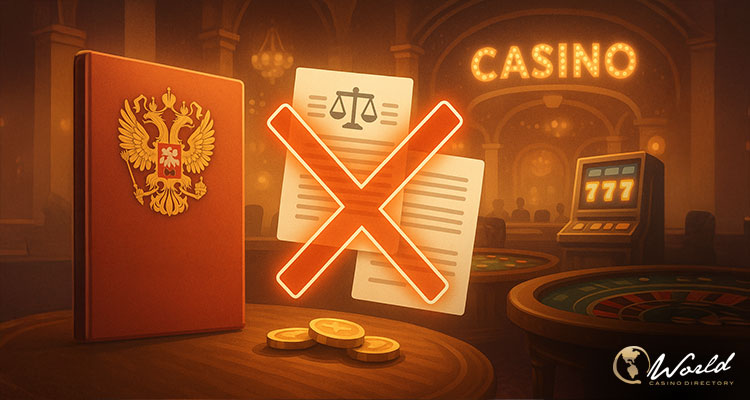The Russian Ministry of Finance has put forward a proposal that could significantly change how the country’s gambling sector is supervised. Under the suggested reform, licensed bookmakers and casinos operating within designated gambling zones would no longer be subject to regular on-site inspections. Instead, authorities would rely solely on preventive visits to monitor compliance—an approach already used in most other industries.
Gambling inspections may be replaced by preventive measures in Russia:
According to Izvestia, the Finance Ministry’s draft regulation aims to align gambling oversight with the broader federal law governing state and municipal control. While a moratorium on inspections has already been in place for much of the private sector, gambling operators have remained an exception due to separate regulatory provisions that still require on-site inspections.
The proposal is intended to reduce contradictions in law and remove what authorities view as unnecessary and burdensome interference. “The new changes involve a risk-based approach,” said lawyer Alexander Khaminsky, who explained that previously mandatory scheduled controls—like site visits and test purchases—would be dropped in favor of less intrusive methods, such as virtual consultations or app-based communication with regulators.
There are currently 31 companies operating in the Russian gambling sector, including eight located within official gambling zones in regions such as Sochi, Primorye, Kaliningrad, and Altai. These zones are the only legal areas for casino activity in Russia, with operations outside them deemed illegal.
Gambling enterprises have welcomed the proposed shift. Oleg Davydov, Executive Director of the First SRO of Bookmakers, noted: “Replacing inspections with mandatory preventive visits will only allow the authorities to better control the situation on the ground, and the organizers of the games will have the opportunity to consult and eliminate deficiencies in a timely manner. So the change will benefit both the state and business.”
These preventive visits, rather than full audits, would still allow officials to monitor companies and issue recommendations. Yet, they won’t absolve gambling firms from accountability. Regulatory bodies will retain the right to conduct unannounced inspections if public interest or legal violations are at stake. Anastasia Melnikova, a senior lecturer at Plekhanov Russian University of Economics, clarified: “If regulators suspect a threat to the well-being of citizens or the state, they may schedule a [visit]. They can intervene in cases where, for example, they suspect there may have been incidents of employee labor rights violations.”
New rules arrive as gambling activity grows rapidly:
Despite regulatory constraints, gambling activity in Russia is on the rise. According to the Unified Gambling Regulator (ERAI), regulated bookmakers processed 1.7 trillion rubles in bets in 2024—a 40% year-over-year increase. Meanwhile, visitor numbers at legal casinos also saw a 10% bump, reaching approximately 2.1 million annually.
The Finance Ministry’s renewed focus on legal consistency comes as part of broader efforts to reduce red tape for businesses. Karina Ponomareva, a professor at the Presidential Academy’s Higher School of Law, noted the shift from punitive oversight to preventative support reflects a larger policy trend. “The changes are in line with the general trend. The focus is shifting from inspections to prevention. This allows us to significantly reduce the administrative burden on businesses,” she said.
Although inspections may become less frequent, gambling operators are still subject to strict rules. Advertising remains tightly controlled—TV promotions for bookmakers can only be aired during sports broadcasts or late-night hours, and online ads are restricted to sports-focused websites.
The sector also faces new obligations. Amendments introduced in March 2025 would require operators to verify the legal capacity of anyone placing a bet and prohibit credit card betting. Lawmakers are also considering a nationwide self-exclusion option, allowing individuals to ban themselves from gambling.
While the proposed overhaul reduces regulatory pressure, authorities remain vigilant. As Deputy Finance Minister Ivan Chebeskov warned earlier this year, rising public interest in gambling presents growing social concerns.


